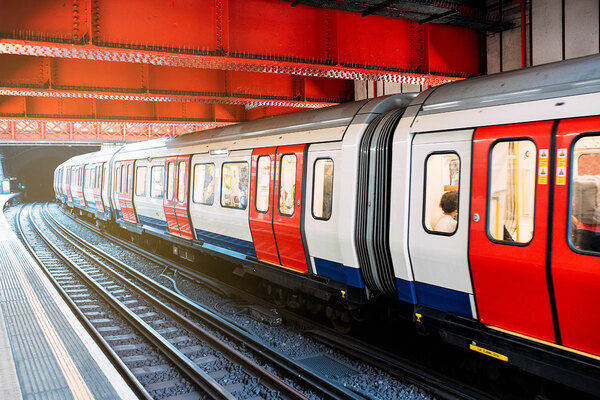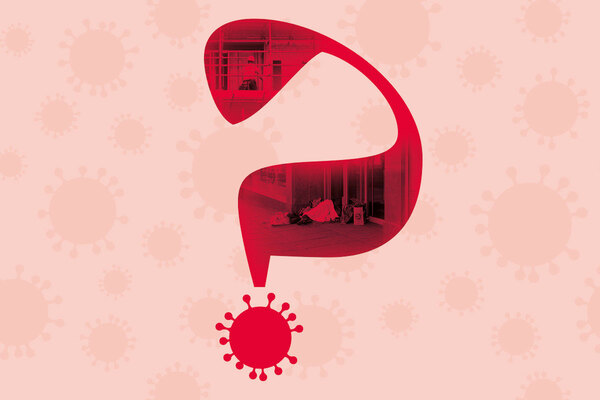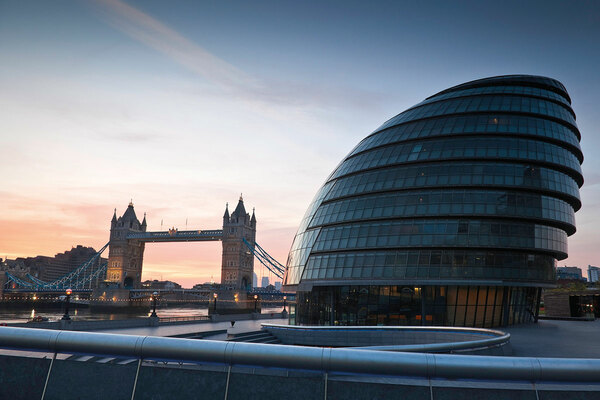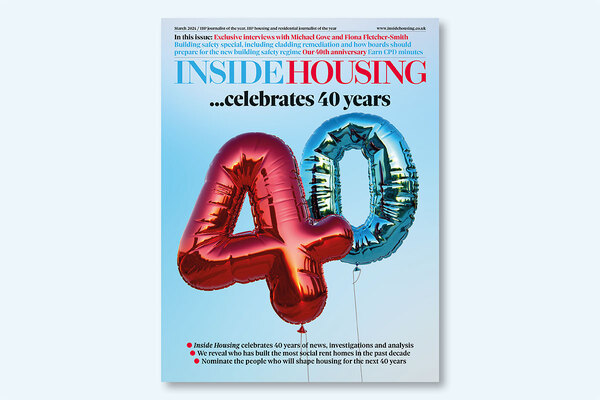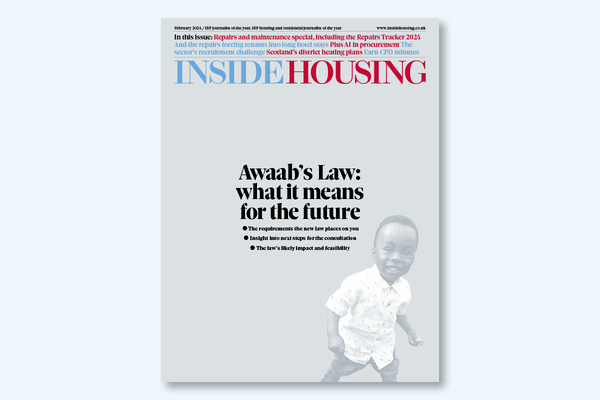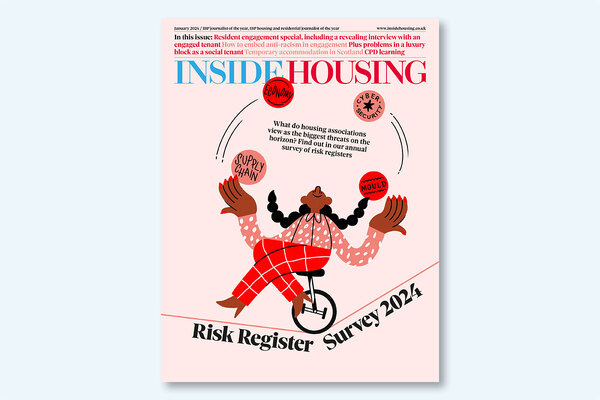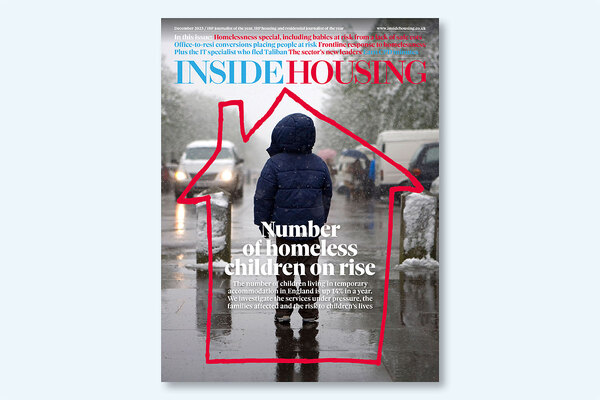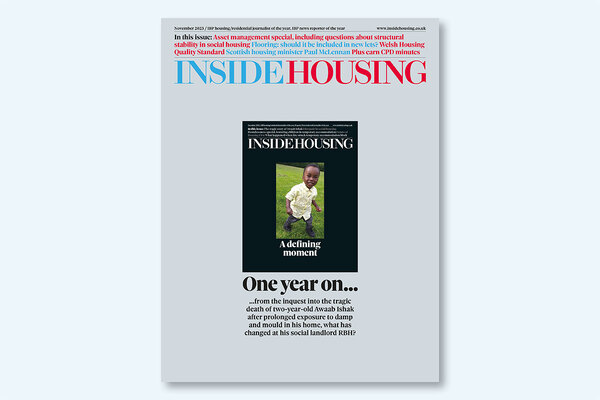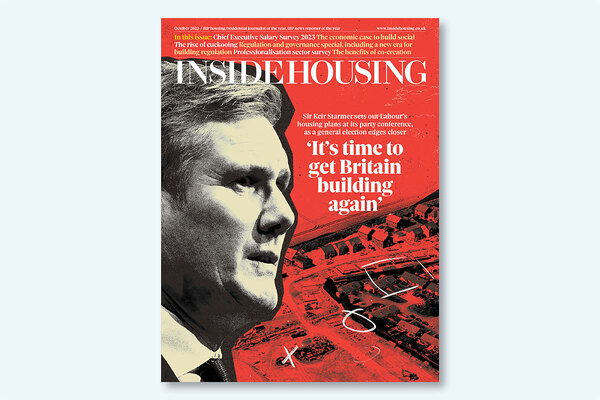You are viewing 1 of your 1 free articles
 Jules Birch
Jules BirchCoronavirus is forcing us into a series of changes that will add up to something much bigger for the housing market
Coronavirus is already changing the way we look at the world and shape our lives. These changes will ripple out into the world of housing and the impacts will be substantial, writes Jules Birch
How will coronavirus change how we live and work – and how will that change housing?
In one sense, these are impossible questions to answer since so much depends on how quickly we find a vaccine or an effective treatment for the virus and how deep the recession will become.
Find either quickly and politics and the economy could soon return to something close to what we knew before February. After all, it seemed obvious that nobody would want to live or work in tall buildings after September 2001 and that house prices would fall after 2008.
If the search takes longer, if there is a second or third wave, or if another coronavirus hits us, the effects could be far more profound as social distancing and self-isolation change how we think about how we should live.
But in between those two scenarios, many of the effects of the crisis will linger and a series of more marginal changes may add up to something bigger.
After months in which our homes have become the centre of our lives, not just places to eat and sleep but places to work and stay safe, the effects on housing could be just as profound.
For starters, as I wrote last month, the crisis has shone a harsh light on the huge inequalities in our housing system between the comfortably housed, the insecurely and badly housed, and those without anywhere to call home.
For now at least, the crisis has put a new value on space and on a spare room for an office and a garden for relaxation.
Outside the home, the bars, restaurants, clubs, theatres, cinemas, sports stadia and galleries that make urban living so attractive will be adapting to a more socially distanced world.
It’s currently hard to imagine those places operating at anything more than half their previous capacity, making all of them much more expensive than before – even if they do survive.
This would suggest (for those who have a choice) a shift in the balance of decisions about where to rent and buy away from well-located but cramped inner-city flats in favour of houses in the suburbs or beyond.
The sort of large-scale urban development that has remade many of our cities in the past decade was already being undermined by the cladding and leasehold scandals, although investment in build-to-rent was pushing in the opposite direction.
At the same time, air travel is likely to become rarer and more expensive. That may mean fewer of the advance sales to overseas buyers on which so many big urban projects depend. The super-rich are likely to favour big houses with grounds over luxury apartments, and short-term rentals will no longer look like a one-way bet.
Is much of the urban renaissance agenda that followed the influential report by Lord Rogers in 1999 now under threat? And if it is, will that mean increased pressure on the green belt?
Feeding into those sort of questions about how we live will be the impact of the crisis on the way we work. More people working from home looks to be a given, with technology adopted in weeks that might otherwise have taken years, and fewer people will commute at the same time every weekday.
At least in the short term, and probably longer than that, fewer people will want to commute by public transport, preferring to walk or cycle shorter distances or the isolation of their car for longer journeys. In the longer term, some who know they will be working from home several days a week may choose to move beyond what they would consider an acceptable distance for a daily commute.
Perhaps that will lead to more second homeownership as wealthier workers opt to live in the country or by the seaside while keeping a flat in the city?
“In the cities, the aftermath of the pandemic could reshape the urban environment. House prices could soar in areas within walking or cycling distance of major financial centres, for example, but fall back in ones that rely on commuting by public transport”
All of those factors will influence and be influenced by organisational decisions about the size and location of offices, perhaps in favour of locations that are well connected by road for electric and eventually self-driving cars.
However, change will not all work in one direction. Back in the cities, the aftermath of the pandemic could reshape the urban environment.
House prices could soar in areas within walking or cycling distance of major financial centres, for example, but fall back in ones that rely on commuting by public transport.
Chief executives of companies looking for ways to cut costs after the crisis are likely to look closely at their investment in expensive corporate offices – it may be too soon to declare the death of the office but working from home could deliver big cost savings and lead to lots of vacant office space.
The pandemic is also set to mean a dramatic acceleration in the decline of physical retail – several big chains have already gone bust while others are demanding rent holidays and reductions.
That will create a big opportunity for housing-led regeneration of high streets and maybe even the chance of affordable housing in the centre of our cities.
The problem is that, on current policy, this will happen via the free-for-all of permitted development – a regime that current strategy extends from office conversions to the replacement of vacant commercial, industrial and residential blocks – and lead to a rush of poor-quality development.
But a new wave of shoebox ‘homes’ will look even less desirable in a post-coronavirus world and perhaps there will be an opportunity for well-planned regeneration instead.
On the edge of our cities, the debate about land value capture could gain a new lease of life as we look to the opportunity to buy agricultural land at existing use value – but, again, there will be a struggle between deregulation and regulation.
All of this will be happening in a political environment more favourable to decent housing for essential workers at a price they can afford and more hostile to the conversion of homes into profitable short-term and holiday lets.
Political choices about housing will not just be about economics and supply and demand, it will also be about whether we want cities where essential workers can afford to live or not.
Jules Birch, columnist, Inside Housing
